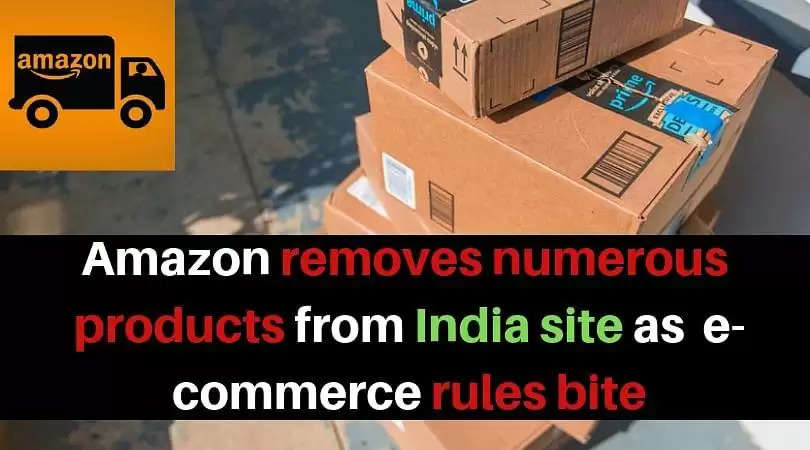Amazon removes numerous products from India site as e-commerce rules bite

NATIONAL | February 1, 2019:
E-commerce rules that went into effect in India on Friday caused widespread disruption for Amazon.com, forcing it to take down an array of items from its India website including Echo speakers, batteries and floor cleaners.
Two sources with direct knowledge of the matter said the products began to disappear from the Amazon India site late on Thursday as it began complying with the revised norms before a midnight deadline.
"The company has no choice, they are fulfilling a compliance requirement … customers will suffer," said one of the sources.
In December, India modified foreign direct investment (FDI) rules for its burgeoning e-commerce sector, which has drawn major bets from not only Amazon.com but also the likes of Walmart Inc, which last year bought a majority stake in homegrown e-commerce player Flipkart.
India's new e-commerce investment rules bar online retailers from selling products via vendors in which they have an equity interest, and also from making deals with sellers to sell exclusively on their platforms.
By Thursday, numerous items sold by vendors such as Cloudtail, in which Amazon holds an indirect equity stake, were no longer available on the Amazon India site.
Clothing from Indian department store chain Shopper's Stop was also no longer available, as Amazon owns 5 percent of the company.
Amazon's own range of Echo speakers, its Presto-branded home cleaning goods and other Amazon Basics products such as chargers and batteries had also vanished from the website.
Both Amazon and Walmart had lobbied against the latest rules and pushed for a delay in their implementation, but India late on Thursday said the deadline stood.
The situation in India is "a bit fluid right now," but the country remains a good long-term opportunity, Amazon Chief Financial Officer Brian Olsavsky said on a conference call with reporters following its fourth-quarter earnings announcement.
The company's main goal is to minimize the impact of the new e-commerce rules on customers and sellers, he added.
(Reuters)

















